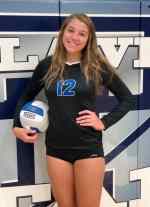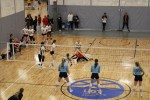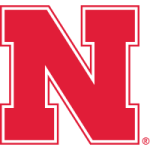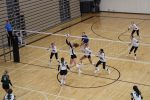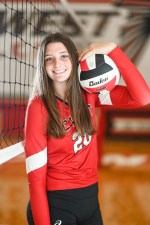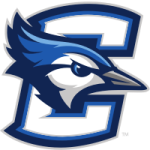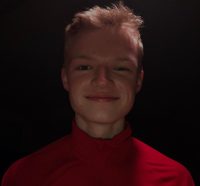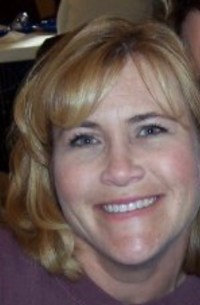Brent Lewis: Team Chemistry is Foundation for Success

One of the greatest challenges as a coach is to develop positive team chemistry and have everyone competing for the same goal. It’s not something that comes easy; there have been many books written about it based on several varying philosophies. Coaches have team building activities, “learn about your teammates” exercises, and many other tactics to cultivate a sense of intimacy for the team. I don’t think the same techniques can be used year to year or team to team. The reason for that is simple- my team of 14 players consists of 14 different, unique personalities. Your team of 14 players consists of a different 14 unique personalities. I don’t know your players and what it will take to bring them together. This is why it is so important for coaches to take an active role into learning about our players on an individual basis. I’m not going to begin to act as if I have all of the answers on this subject, but I will offer you some of what I have learned.
Perhaps the greatest accomplishment in the history of USA sports was the 1980 US Men’s Hockey Team that won the gold medal at Lake Placid against enormous odds. The group of 20 college kids was able to band together to defeat the mighty Soviet Union, who had taken home six of the previous seven gold medals. The man behind the magic was hockey legend Herb Brooks, who was also head coach for the University of Minnesota at the time. Coach Brooks knew that they could not defeat the Soviets on talent alone. Basically the whole premise of the movie leading up to the Soviet game was how he drilled the concept of team and togetherness into the heads of his players. This all culminated in the now infamous “who do you play for?” scene.
Watch it here:
Coach Brooks knew that if they didn’t come together they had no chance at a medal, but it wasn’t until the players bought in that things changed. Once they grasped it they were destined for greatness. It all started with Herb. He understood what he was up against, what he needed to do to accomplish it, and, most importantly, who he needed in order to get it done. There’s a line Herb says early in the movie that I have adapted into my recruiting philosophy. It’s short and simple, yet it’s beautiful:
It’s important to note that no coach has ever won without good players. Alabama football coach Nick Saban once said he couldn’t coach bad players to be good players so he just recruited the best players he could find. But the line Herb says is brilliant. He knew that he not only needed good players, but he needed those that would fit into the system, do the right things, and all want the same goal. So what does the Miracle on Ice have to do with volleyball? Not much. But the principles Herb Brooks demanded have everything to do with building team chemistry.
I’m always trying to recruit the best players I can find. I have grand aspirations for our program at Iowa Western and I try to locate and snag the talent to match. It takes a lot of work and I have to get comfortable being told “no” over and over. But when there’s that special student-athlete that falls in love with us and commits, it far supersedes all of those no’s. The feeling of landing a prized recruit cannot be appropriately explained with words in this article. The type of player I look for has been adjusted a bit based on Coach Brooks’ principles. The 2014 Iowa Western team has a different feel than the 2013 squad. Naturally at a two-year school half of the team is new, but the anticipation of going into the 2014 preseason has a sense unlike last year. We feel that our mix of personalities is a great fit for what we want to accomplish. We emphasized that in our recruiting this year and strived to have a team of positively-blended character. We looked more for the right mix of student-athletes rather than the best natural talent we could find. We did a lot of communicating with high school and club coaches, and I even went as far as to ask some teammates of our recruits what they thought of them. Following a host of positive comments on our recruits, we have high expectations for the upcoming season.
There’s one principle I really like- the principle of “we.” In the natural scheme of coaching, giving instruction, and feedback, it seems that coaches use the word “I” an awful lot. (“I don’t like that.” “I think you should do it this way.” “I don’t think you played your best.” “I like when you do that.” “I like this way better.” “I would prefer if you didn’t do that.”) It can be done in a positive and negative fashion, directed towards a team or individual. The reason I don’t like this is because it creates a natural separation of “I” and “you.” Since I like to generate a feeling of togetherness, I attempt to use the word “we” instead of “I” as often as possible. (“We need it this way.” “We always do better when this is done.” “We didn’t play well.” “That’s exactly what we need you to do.”) Sometimes it seems impossible to communicate without using “I” so I still say it, I just try to monitor how often in an attempt to make the players feel like we are all in this together.
Ultimately, I believe that chemistry originates and is evolved by the head coach. Whatever precedent is set by him/her trickles down to everyone else. One of my favorite people in all of volleyball is Giovana Melo, head coach at Cal State-Bakersfield. She was previously the head coach at our biggest rival, Western Nebraska. They were the most annoying, obnoxious, and passionate team I’ve ever played against. And I mean that in a very positive light. The precedent she created there was one of hard work, passion, and love. She pushed her players to maximize their abilities, they all played with an uncanny love for the game I’ve never seen before, and they knew how much she cared about them. It all started with Coach Melo. They followed her lead and were better off for it. Don’t believe me? Hear what her players have to say:
https://www.facebook.com/photo.php?v=10153534303170646&set=vb.207814549362963&type=2&theater
That’s what it’s all about. In her six years at Western Nebraska, their record was 262-20.
In my three years of collegiate coaching, I have coached 37 players. It takes a lot of work to connect with them and earn their trust and respect. It’s not easy, and downright frustrating at times, but in the end it’s always worth it.
Brent Lewis joined the Reiver volleyball staff in May 2013. In his first season at Iowa Western, the team finished with a 44-5 record and earned a 7th place finish at the NJCAA Division I National Tournament after being ranked as high as #2 during the regular season. Working mainly with outside hitters and defenders, the Reivers led the nation in both kills and assists in his first season.
He arrived at Iowa Western after spending two seasons as an assistant coach at Hardin-Simmons University in Abilene, Texas. He helped the Cowgirls to a 58-10 overall record, 38-3 record in the American Southwest Conference, two conference titles, and two NCAA regional tournament appearances. At HSU his primary coaching responsibilities were with setters and defenders. He helped orchestrate an offense that led the conference in kills and assists both years he was on staff. Following the 2012 season HSU was named American Southwest Conference Coaching Staff of the Year.
As an assistant coach at the collegiate level he has amassed a record of 102-15. This includes two school-record winning streaks, first with the 2012 HSU squad that won 25 consecutive matches, then again last season at Iowa Western with 33 straight victories. He has also never lost a home game in his career (29-0). He has coached eight All-Conference players, one conference MVP, five All-Region players, and three All-Americans.
A majority of his work lies in the statistical and analytical realm. Known as someone who enjoys working with numbers, he has written two papers on volleyball statistics. His 37 page Master’s thesis was entitled, “Discovering Success in Volleyball: An Integral Match Analysis of the Relationship between Statistics and Team Rankings” which compared general statistics to team records in order to determine the most significant numbers for predicting the outcome of a win/loss record. His most recent work was completed in December 2013, in which he proposed a new statistic to measure the attacking efficiency of a hitter.
A native of Marshall, Texas, he received his Master’s degree in Kinesiology from Hardin-Simmons University and his Bachelor’s degree in Mass Communication from East Texas Baptist University. He played collegiate club volleyball as a right side hitter for ETBU and also worked as an adjunct instructor in the Fitness and Sports Sciences Department at Hardin-Simmons. In addition to coaching at Iowa Western, he also serves as the head coach for Top Ten Volleyball Club and is a regular contributor to Nebraskaprepvolleyball.com. This summer he worked on staff with Iowa High Performance Volleyball, which features some of the best youth and amateur players in the state. He lives in Council Bluffs.
